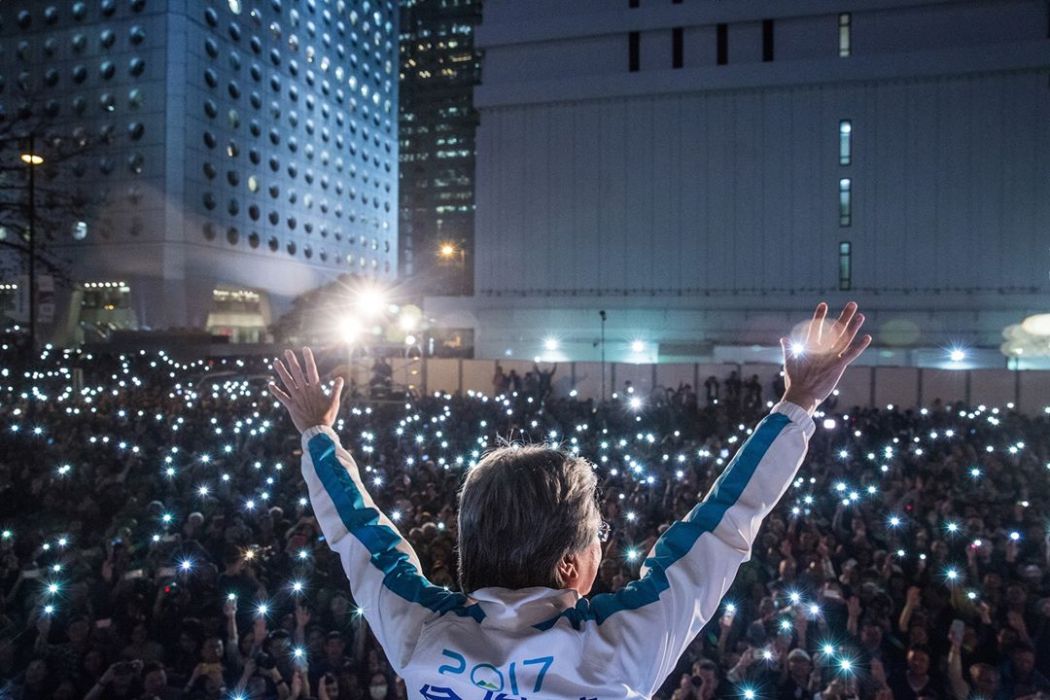As a new chief executive and government begin their preparations this week, a substantial portion of us remain dejected and downhearted.
There’s a disappointment that lingers in the aftermath of the election: It’s not just that the candidate with a popular mandate lost, but a wider disillusionment that it’s a small-circle election and a rigged process – unless you are an insider, the system will not work for you.

It has become easy for us to give up and expect the coming five years to be another “lost period” for Hong Kong, especially as we slip back into our default setting. Yet from another perspective, this election has perhaps given us hope that the start of a new era of politics awaits.
Polarisation: our default setting
“It’s a matter of my choosing to do the work of somehow altering my natural, hard wired default setting which is to be deeply self-centred and to see and interpret everything through this lens of self.” – David Foster Wallace
The default setting in Hong Kong’s public discourse has always been political polarisation where we only see things from our own perspective.
This default setting plays out in three ways. First, it’s always “us against them” where only our side is right and the other side are enemies to be destroyed. Second, issues are always only black or white – there’s no middle ground to be considered. Third, the backdrop prevents engagement on a common baseline of facts and ensures there is no room for compromise.
We see polarisation manifested across the political spectrum.
We have pan-democrats whose sole duty in the Legislative Council is to always oppose the government, while the default position of the pro-establishment is to always support the government. We have youths who easily take a moral high ground against China and refuse to see the nuances and the grey in the Chinese system, against older generations who are fiercely loyal yet fail to see the existing contradictions of One Country, Two Systems. We have strong political activists who see escalation as the only way out against a Beijing that always values control over letting go and trusting Hong Kong.

The interaction of these polarising forces has led to only one outcome: a breeding of extremism and deadlock. From increasing instances of filibustering in LegCo, to the rise of youthful forces demanding extreme unfeasible calls for independence, to Beijing taking more preemptive action including yet another Basic Law interpretation last year, we have seen our politics being dragged towards two opposing ends.
We were all expecting this situation to worsen, that was until John Tsang came along.
The awakening of the centre
What John Tsang’s campaign recognised is that despite it being a small-circle election, public mandate still comes first, and every single political voice is important. There was a desire to actively engage by providing platforms for participation (fundraising, rallies) and a call to believe in something bigger than our own interest, to transcend our default setting by having hope and rebuilding trust.
It’s no surprise that he is possibly the first pro-establishment candidate that received such strong backing from pan-democrats. One will also recall his visit to the University of Hong Kong early in his campaign where the warm reception by students were unlike what you would expect for any pro-establishment government official.
More importantly, as it became obvious how close-knit the election was, the movement then spilled over to the middle-class and the silent majority. By bringing together support across age, income and political factions, the campaign has helped to awaken the missing centre of our politics.

The campaign gave us a call to come out and show China and the world that Hong Kong can unite together as one, even if it’s against our default setting. It genuinely gave us hope.
A new politics forward
Many will argue that John Tsang’s failure means that moderate politics will not work. Maybe the last thing Chinese government wants is a strong leader with public mandate in Hong Kong.
On the contrary, if Beijing indeed values stability, the last thing it wants is a Hong Kong in constant social turmoil and a state of ungovernability. We might have failed this time, but the path of a new centrist politics is always going to be difficult to push. This is especially as it takes time to reverse on our default setting, and for values like moderation and conciliation to take root in both Hongkongers and in Beijing.
So perhaps we can see the current election as a start to something better. We can keep our unashamed idealism in hoping and convincing others of a better politics. Our new chief executive has already recognised the need to reconcile social divisions. The hope is that she can follow up with action, such as making greater attempts to bridge the legislative divide and forming a cabinet with diverse political talent.
Even more fundamentally, a key lesson from government school is to always over-communicate and over-engage with stakeholders, a skill that the last government brutally lacked.

More importantly, we should await the re-emergence of centrist politics. We should both wait for new political forces to continue to shape up, and for existing forces to return more to the centre from the extreme ends into which they have forced themselves. The new centrists will have to work on both capturing the trust of Hongkongers and the trust of Beijing. We need to show that better governance in Hong Kong equates to greater stability that better facilitates our integration with the mainland over time.
The truth is our Hong Kong is always going to be an experiment and work in progress. If there is one thing we can learn from John Tsang’s campaign, it’s that he has asked us to step away from our default setting and to trust each other, because this is an experiment bigger than ourselves.
